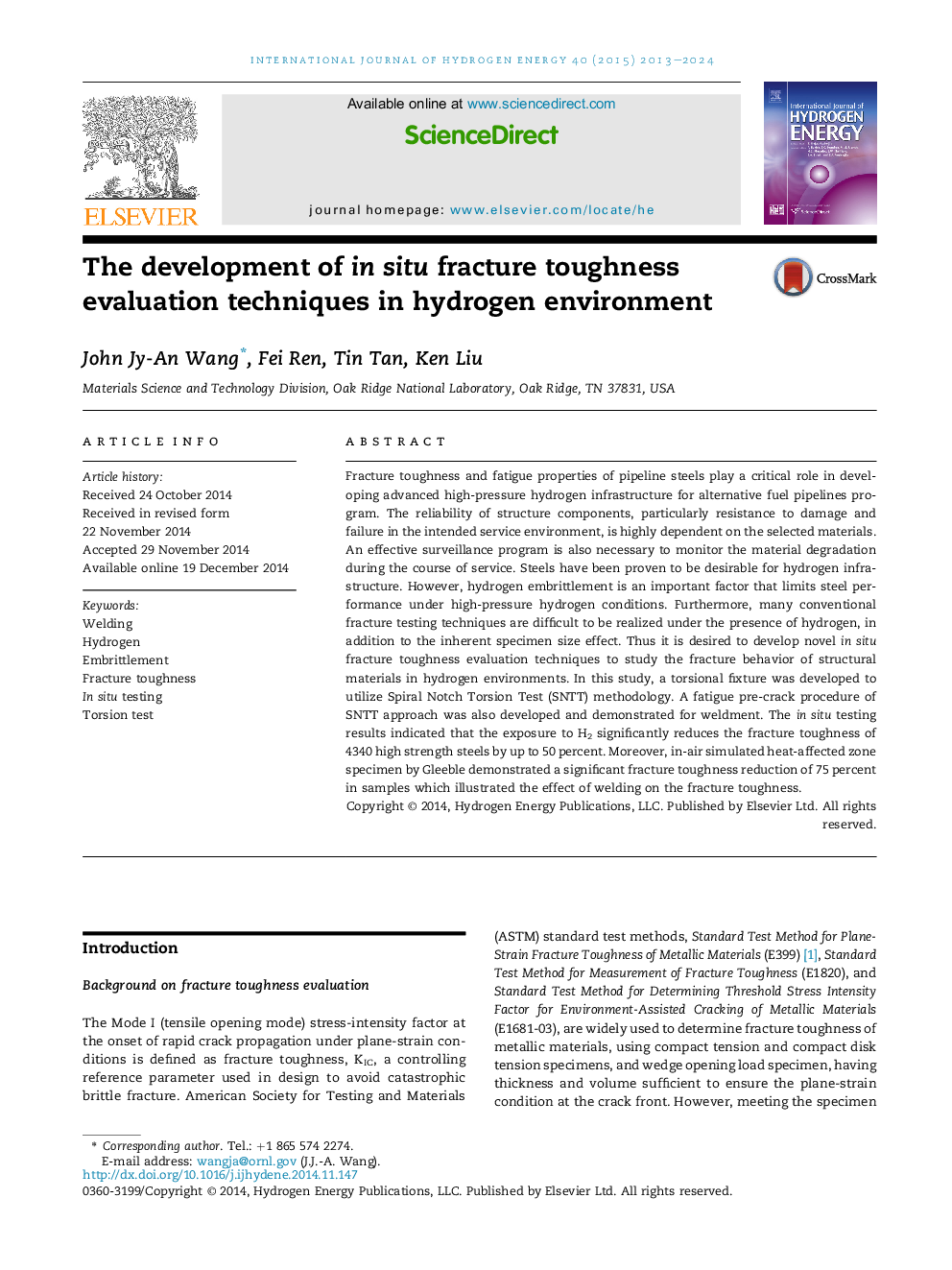| Article ID | Journal | Published Year | Pages | File Type |
|---|---|---|---|---|
| 7716581 | International Journal of Hydrogen Energy | 2013 | 12 Pages |
Abstract
Fracture toughness and fatigue properties of pipeline steels play a critical role in developing advanced high-pressure hydrogen infrastructure for alternative fuel pipelines program. The reliability of structure components, particularly resistance to damage and failure in the intended service environment, is highly dependent on the selected materials. An effective surveillance program is also necessary to monitor the material degradation during the course of service. Steels have been proven to be desirable for hydrogen infrastructure. However, hydrogen embrittlement is an important factor that limits steel performance under high-pressure hydrogen conditions. Furthermore, many conventional fracture testing techniques are difficult to be realized under the presence of hydrogen, in addition to the inherent specimen size effect. Thus it is desired to develop novel in situ fracture toughness evaluation techniques to study the fracture behavior of structural materials in hydrogen environments. In this study, a torsional fixture was developed to utilize Spiral Notch Torsion Test (SNTT) methodology. A fatigue pre-crack procedure of SNTT approach was also developed and demonstrated for weldment. The in situ testing results indicated that the exposure to H2 significantly reduces the fracture toughness of 4340 high strength steels by up to 50 percent. Moreover, in-air simulated heat-affected zone specimen by Gleeble demonstrated a significant fracture toughness reduction of 75 percent in samples which illustrated the effect of welding on the fracture toughness.
Related Topics
Physical Sciences and Engineering
Chemistry
Electrochemistry
Authors
John Jy-An Wang, Fei Ren, Tin Tan, Ken Liu,
